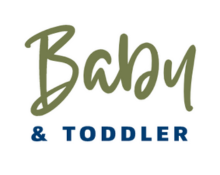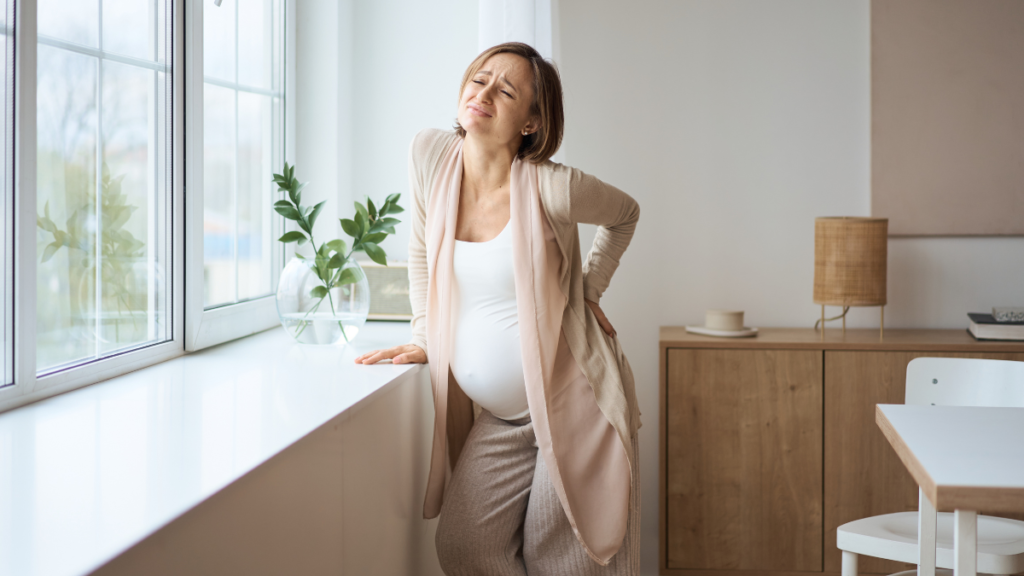What causes rib pain during pregnancy?
Rib pain tends to crop up in the second and third trimesters, especially near the end of your pregnancy, as your belly — and everything else — stretches to accommodate your growing baby.
There are a few possible causes of rib pain during pregnancy, including:
Hormones
The same pregnancy hormones that are responsible for loosening your joints — especially that aptly named hormone, relaxin — can sometimes cause the ribs to expand. This is welcome news to your lungs (which are already short on space) and uterus (which won’t stop growing), but not to your achy ribs and side.
Inflammation
The cartilage attached to your ribs can loosen and expand during pregnancy, causing inflammation (read: pain) in the area.
Increased pressure from the uterus
As your uterus continues to expand — and your breasts keep getting bigger — your rib cage may be, quite literally, under some pressure.
Baby’s kicks
Your little contortionist may have sunk a foot into your ribs, and (surprise!) she packs a powerful punch.
How does rib pain change during pregnancy?
In the early stages of pregnancy, you may not experience any rib pain at all. Some women, however, will feel rib pain during the later stages of their pregnancy when their body starts to stretch in earnest. Here’s how rib pregnancy can change as the months progress:
First Trimester
Because rib pain is often caused by an ever-expanding body — particularly a uterus that keeps stretching to accommodate a growing baby — it doesn’t tend to occur in the first trimester. By the end of the first trimester, it’s likely that your baby weighs only an ounce or less. What’s more, many women don’t gain very much weight in the first few months of their pregnancies. Those who have morning sickness may even lose a few pounds.
Second Trimester
As your baby continues to grow, you may experience some rib pain and shortness of breath, which crops up as your growing uterus pushes up against your diaphragm and compresses your lungs.
Third Trimester
Rib pain tends to continue later in pregnancy, when the uterus is expanding in earnest and putting more pressure on the ribs. Your baby is also growing bigger — and likely throwing a few jabs or kicks into your ribs too.
The good news: In the weeks before you deliver, your baby often gets ready for birth by dropping into the pelvis, which takes the pressure off your ribs (and keeps them safe from any stray kicks).
How do I relieve rib pain during pregnancy?
You don’t have to wait until delivery day to feel better. Use these tips to ease rib pain.
Wear loose clothing
A too-tight shirt or dress can add more pressure to your already-aching ribs. Stick to maternity dresses, loose sweaters and extra-long tanks and T-shirts.
Take a bath
A warm (not hot) bath can ease many of the aches and pains of pregnancy. Not sure you can safely climb out of a bathtub? Try a heating pad instead.
Find a different position
If your baby is a, well, pain in the ribs, try to change her position by changing yours. Try bouncing on an exercise ball or doing a few pelvic tilts. You can also try getting onto all-fours and leaning over the exercise ball, being in this position sometimes stretches out those muscles around the ribs, providing some temporary relief.
Avoid sitting down for too long
It is advised to get up and stretch or take a short walk every two hours (or more often, if it helps). Sitting for too long will restrict your circulation, so having a stretch will expand the ribcage, allowing you to breathe, and also increase circulation. When sitting down, try to put your feet up as this will help to reduce puffiness.
Wear a belly-support band
Belly-support bands are designed to help redistribute the weight around your growing middle. While they’re primarily used to ease round ligament pain, they can also help take the pressure off your straining abdomen, which may be pulling on your ribs and causing pain.
Heat or cold packs
Some women like hot packs for the relief of rib pain; others prefer cold packs. At the end of the day, do whatever works for you. Be mindful not to make the hot pack too hot as this will cause a skin burn. Just place the pack wherever it is most comfortable, where you feel most pain and where it provides the most relief in the rib area.
Cut our inflammatory foods
Reducing sugar and grains – the two main foods that can make you feel increased inflammation in pregnancy – will certainly help reduce the rib pain.
Take Tylenol
If you’ve tried every home remedy for rib pain to no avail, ask your doctor if you can take Tylenol (acetaminophen).
Visit a Chiropractor
An adjustment can help make sure your skeletal system is in the correct position, especially as the stress of pregnancy shifts your body. An adjustment may also help your baby settle into a lower position, taking some pressure off of your ribs.
When should I be concerned about rib pain?
If you have concerns about rib pain or nothing seems to be helping, it’s a good idea to call your doctor or midwife.
Call, too, if you’re having rib pain in your upper abdomen, particularly if it’s flaring up under the ribs on the right side of your body. Pain that appears in this area is a possible symptom of preeclampsia, a pregnancy complication that’s characterized by high blood pressure. Other signs of preeclampsia include severe headaches, changes in vision and nausea.
Preeclampsia likely won’t go away until after your baby is born, and until then, it’s important that you’re treated for it. If you do have preeclampsia, your doctor will likely recommend regular blood and urine tests, and ask you to monitor your blood pressure levels. Depending on how severe your condition is, you may need to take BP meds or receive treatment in the hospital.
